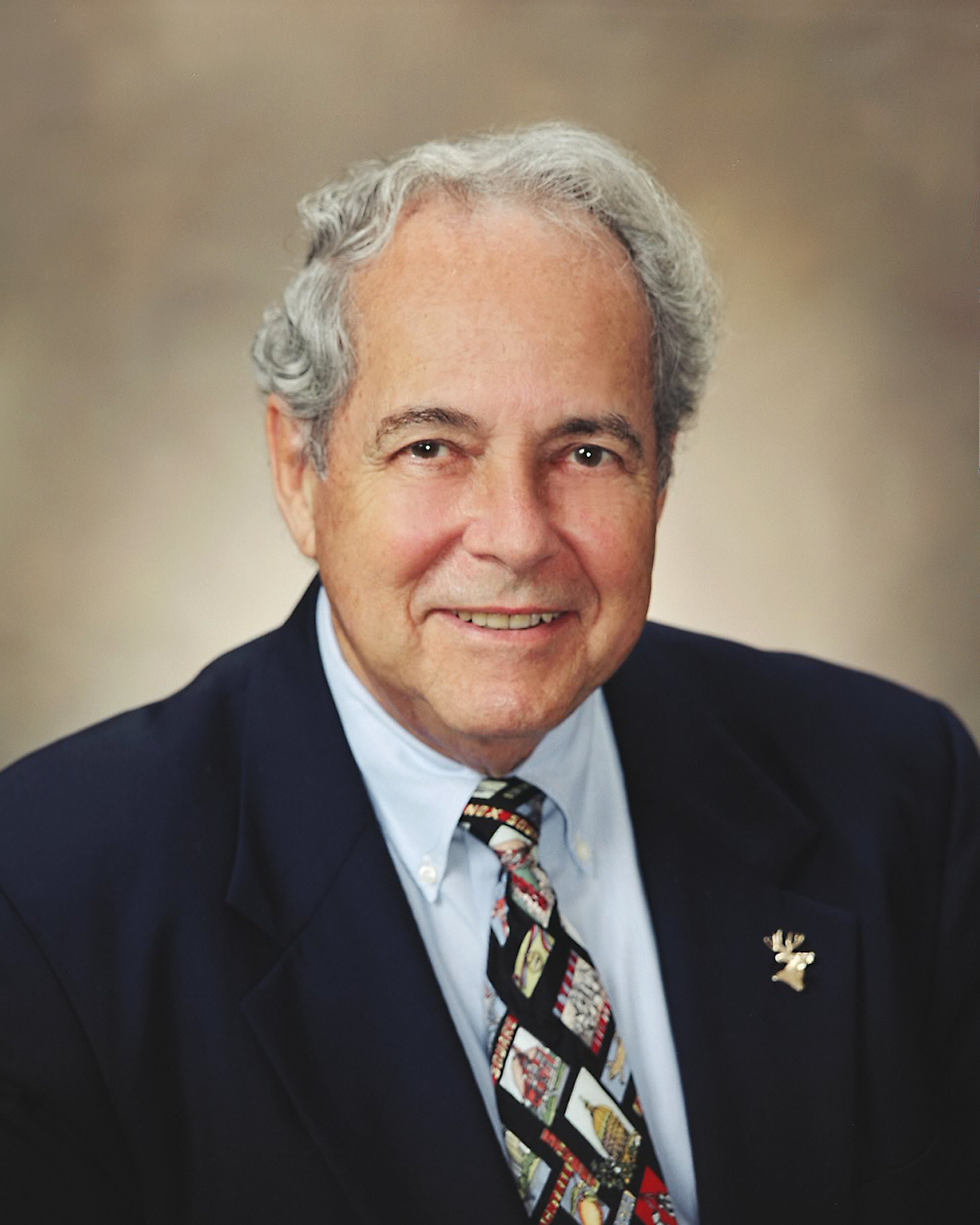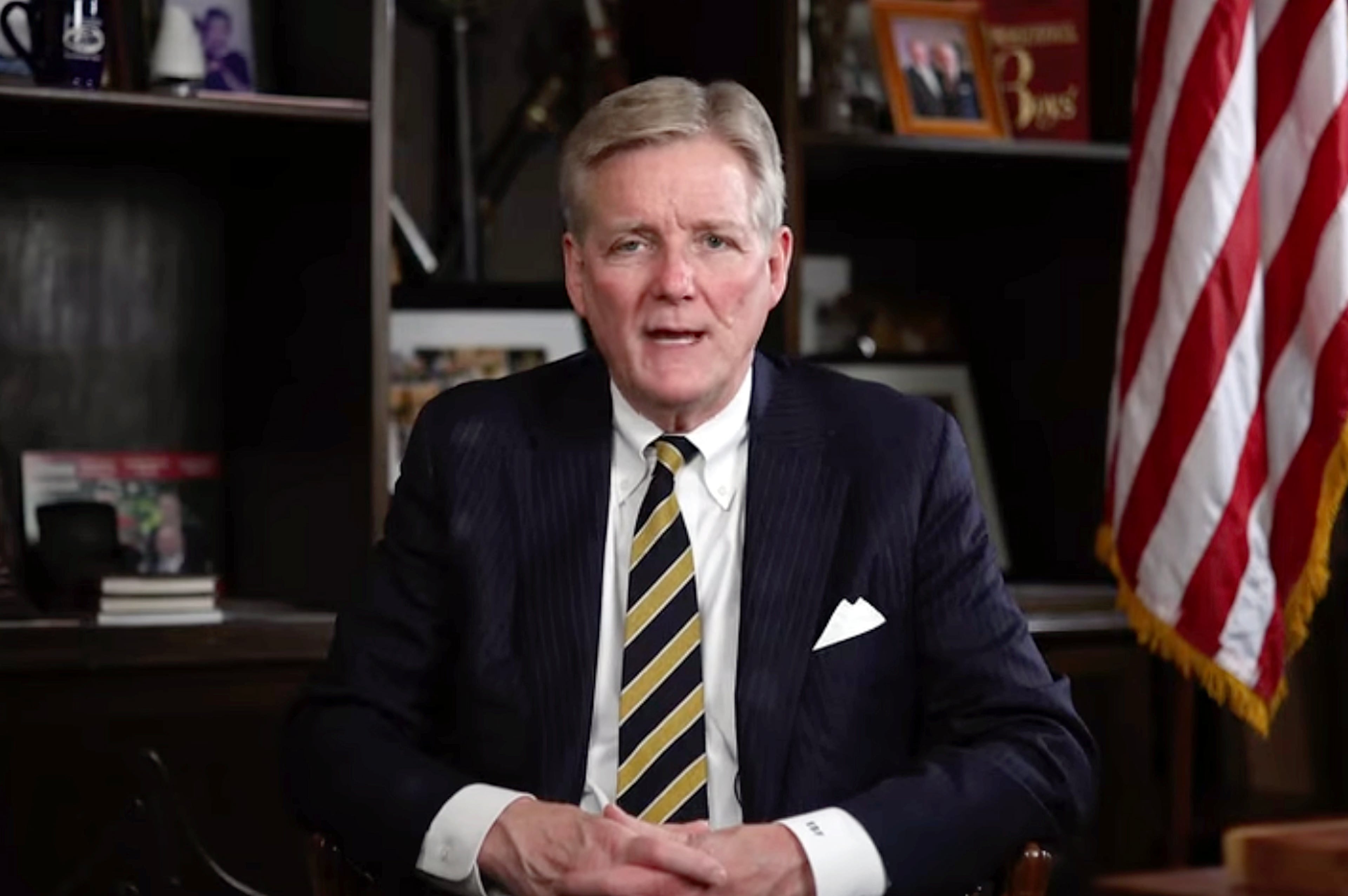Sam Massell, former Atlanta mayor, dies at 94

Sam Massell, who died Sunday at age 94, was proud to be remembered as a former mayor of Atlanta. But he chafed at constant references to him as “the mayor of Buckhead,” even though he became synonymous with the city’s celebrated uptown district.
To be sure, from 1988 until 2020, he was the outgoing and affable spokesman for the business-oriented Buckhead Coalition. When a story about Buckhead broke, he usually was the first person the media would consult — “because I always return their calls,” he once said.
Just the same, he would tell anyone who asked that (a) he cared more about the whole city’s well-being than Buckhead’s alone and (b) he had too much respect for the office of mayor to dilute it by accepting even an unofficial title.
One example of his wider concern came in 2002 when Massell initiated a much-discussed show of support for Mayor Shirley Franklin at a time she was fielding numerous complaints about Atlanta’s neglected infrastructure. He persuaded former mayors Ivan Allen, Maynard Jackson and Andrew Young to join him in signing a public expression of admiration for Franklin’s achievements during her first year in office. Massell said at the time that each of the city’s former mayors, himself included, bore a share of responsibility for putting off vital water, sewer and other repairs.

Arrangements for services are being prepared by the family and will be at the Temple at 1589 Peachtree St. at 3 p.m. Wednesday, March 16, a family spokesman said.
Born on Aug. 26, 1927, Samuel Alan Massell Jr. spent the first month of his life at his family’s Ponce de Leon apartment building, now known as the Massellton. Then his parents moved from Midtown to a house in Druid Hills, where he was reared and went to secondary schools. Later he earned a business degree from Georgia State and a law degree from Atlanta Law School. He attended the University of Georgia and Emory University for more than a year each, and said he contributed to each of their alumni associations “for longer than I can afford.”
In 1951, Massell went into the real estate business, developing a specialty of leasing office space to physicians. They were not the easiest clients to please, he said in a March 2005 interview.
“Most real estate people felt after dealing with one doctor they never wanted anything to do with another. But I developed a good formula with clients in Atlanta, Chattanooga and Jacksonville and might have made millions at it if I had stuck with it,” he said.
During his 20 years as a Realtor , Massell was honored three times by the Georgia Association of Real Estate Boards with its “Transaction of the Year” award.
In 1951, Massell made his first venture into local government. He bought a cabin in Mountain Park, and while he didn’t establish his legal residence there, he still qualified under the law at the time to become a councilman in the north Fulton County community.
A decade later, he was elected president of the board of Atlanta’s aldermen, now known as the City Council. “It was a simpler time,” he said in the 2005 interview. “None of us aldermen had offices or staffs, just business cards.”

As head alderman, he also was vice mayor, “which meant I became acting mayor when the mayor at the time, Ivan Allen, was out of town.”
When Allen chose not to run again in 1969, Massell offered himself as a candidate, surviving a Democratic primary, then a runoff against a candidate favored by the business community.
“Sam’s legacy was transitioning the city from an all white power structure to a predominantly Black power structure. He was the bridge between the two,” his wife, Sandra Gordy-Massell, recalled on Sunday when the family announced the former mayor’s death.
“I won my first mayoral election with 90 percent of the Black vote and 10 percent of the white vote,” Massell said in the 2005 interview. “Four years later after Blacks had become a majority in the city, my numbers were just the opposite, and I lost to Maynard Jackson.”
Massell was proud that the foundation for MARTA was laid while he was mayor. “The first referendum, during Allen’s term, to finance MARTA with an ad valorem increase failed,” he said. “So I began selling a plan to keep fares cheap, just 15 cents, and to subsidize the system with a penny sales tax. The Legislature bought the idea after a lot of lobbying, and so did the voters of Fulton and DeKalb counties.”
Said Sam Williams, president of the Metro Atlanta Chamber, in a 2004 Atlanta Business Chronicle article: “Without Sam Massell, we might not ever have had MARTA,”
Some notable assets to the city were built during Massell’s tenure — Woodruff Park, the Omni complex and Colony Square. Massell, the city’s first Jewish mayor, also set precedents by appointing the city’s first African American department heads and the first woman to the City Council.
“As mayor, I was less a Democratic partisan than I was a liberal, and I continue to think of myself that way,” he said in the 2005 interview. “Years later, Cynthia Tucker called me a moderate in her column (in the Journal-Constitution), and I wrote her right away to admonish her.”
After his defeat in 1973, Massell took up a totally different line of work, operating a travel service, Aditus Inc. Overall, he visited an estimated 85 to 90 countries, leading tours and scouting destinations or cruise lines.
He arranged domestic tours as well, for example taking Atlanta fans to Falcons-Saints games in New Orleans. He also made a point of setting up tours of Atlanta for out-of-towners. “I wanted to create the most diversified travel service in the U.S.,” he said.
In 1988 he was approached to become president of the Buckhead Coalition, an exclusive group of businessmen intent on encouraging quality growth for the Northside neighborhood, keeping it upscale and prosperous.
“It was a chance for me to use my training in public life and my contacts, plus my knowledge of where the bodies (in city government) were buried,” he said.
He considered his major accomplishment in the job was persuading commercial property owners in Buckhead to create a community improvement district and tax themselves to pay for traffic facilitation, beautification and safety upgrades there.
He and the coalition also successfully lobbied the Georgia Department of Transportation to route Ga. 400 through the middle of the Buckhead commercial area and to provide a major exit and entrance to the highway.
The Coalition’s relations with Buckhead residents who worry about overdevelopment were far from smooth. “It took many years to heal that breach,” he said in the 2005 interview, “but now I think we work together amicably.”
Remembering Sam Massell 1927-2022
Former Atlanta Mayor Sam Massell died Sunday at age 94. He was Atlanta mayor from 1970-74 and then led the Buckhead Coalition for more than 30 years.
Metro leaders react to former mayor Massell’s death
January 2020: Sam Massell, ‘Mayor of Buckhead,’ retires from Buckhead Coalition
March 2020: At 92, former Atlanta Mayor Sam Massell ready for his next adventure
April 2021: Op-ed article by Sam Massell in opposition to creating a city of Buckhead
When he was inducted into the Atlanta Convention and Visitors Bureau’s Hall of Fame in 2004, Massell spoke expansively of Buckhead:
“You can be born at Piedmont Hospital, go to school here, get a job here, work here all your life, and retire to a nursing home here. If we just had a commercial cemetery, you could stay here forever.”
Throughout his life, Massell was deeply involved with Jewish institutions here — the Temple, the Atlanta Jewish Federation, the Anti-Defamation League, to name a few.
In a 2002 article in the Atlanta Jewish Times, former U.S. Rep. Elliott Levitas said Massell and a few of his contemporaries deserve credit for building bridges during the 1950s that eventually spanned differences between Reform, Conservative and Orthodox Jews in Atlanta.
“I’ve always felt comfortable with all kinds of people working across social and religious lines,” Massell said in the 2005 interview.
In the same article, Rabbi Alvin Sugarman said of Massell, “The values that you look for in someone who lives out his Jewish faith — that’s what I see in him.”
During the late 1940s, Massell organized a revival of Ballyhoo, a pre-World War II annual event that brought together Jewish young people from all over the South for a week of parties, dances, even matchmaking. This Atlanta custom later gained national fame after the Broadway production of Alfred Uhry’s Tony-winning play, “Last Night of Ballyhoo.” The play premiered in Atlanta in 1996 and was a great favorite of Massell’s.
Georgia Trend magazine recognized Massell’s lifelong civic involvement in 2004 by including him in the publication’s “Most Influential Hall of Fame.”
Andre Dickens, the current mayor of Atlanta, released a statement after news of Massell’s death, reading in part: “I am deeply saddened to learn of the passing of former Mayor and my friend Sam Massell. Sam’s impact on our city was immeasurable. His time as Mayor made history in so many ways.”
Dickens added, “He understood the importance of collaboration and inclusion. I call it drawing circles, but Sam always said that we can get more done through a conference call than through confrontation. That is why I asked him to join our transition team.”
Georgia House Speaker David Ralston said, “Sam Massell was a visionary leader — mayor, businessman, veteran and Realtor. He understood the value of working together to make the future brighter for the city and state he loved. He was a good and decent man whose legacy will live on for generations.”
Former Mayor Shirley Franklin said Sunday: “Mayor Massell’s election as Atlanta’s first Jewish mayor signaled we would embrace a new era of cultural diversity. He inspired a generation of advocates for public transit as an essential component of Atlanta’s economic development plans and his leadership of the Buckhead Coalition deftly balanced the interests of the city and neighborhoods. The Massell legacy as mayor and as a civic leader is evident in the current economic success of the metro Atlanta region.”
An admitted workaholic, Massell had few diversions.
However, when he and Sandra married in 2016, he quipped: “It’s making me feel so young. This has energized me.”
Survivors beside his wife include a son and daughter-in-law, Steve and Krista Massell; a daughter, Cindy Massell; a daughter and son-in-law, Melanie and Jack Jacobs; and three grandchildren, Dylan, Graham and Isabel Massell.
Staff writer Rosana Hughes contributed to this article.
Bio box
Sam Massell served as Atlanta’s mayor from 1970 to 1974, and was succeeded by Maynard Jackson. He is often credited with forming MARTA.
Some other notable assets to the city built during Massell’s tenure were Woodruff Park, the Omni complex and Colony Square. Massell, the city’s first Jewish mayor, also set precedents by appointing the city’s first African American department heads and the first woman to the City Council.
After his defeat in 1973, Massell operated a travel service, called Aditus Inc.
Massell also served as president of the Buckhead Coalition.




